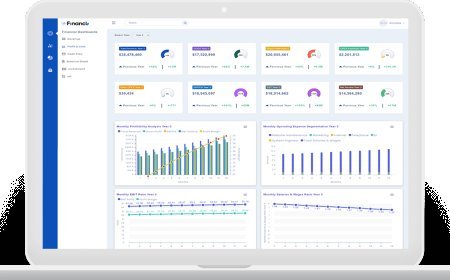Student Loan Servicer Comparison: Nelnet vs. Great Lakes vs. FedLoan
Compare major federal student loan servicers including customer service, online tools, and repayment options to optimize your student loan experience.

Federal student loan servicers play a crucial role in your repayment experience, handling everything from monthly billing to forgiveness program administration. While borrowers don't choose their servicers directly, understanding the differences between major servicers can help you optimize your experience and know what to expect from your assigned company.
Nelnet serves millions of federal student loan borrowers and offers comprehensive online account management through its student loan portal. The servicer provides multiple repayment plan options, including income-driven plans, and handles Public Service Loan Forgiveness (PSLF) applications. Nelnet's customer service receives mixed reviews, with some borrowers praising helpful representatives while others report long wait times and inconsistent information.
Great Lakes Educational Loan Services focuses exclusively on federal student loan servicing and is known for relatively good customer service compared to other major servicers. The company offers online account management, mobile apps, and comprehensive repayment planning tools. Great Lakes has received fewer complaints than some competitors, though it's no longer accepting new federal loan accounts as of 2021.
FedLoan Servicing (PHEAA) was the exclusive servicer for Public Service Loan Forgiveness until December 2021, when it ended its federal servicing contract. Borrowers previously serviced by FedLoan have been transferred to other servicers, primarily MOHELA. FedLoan faced significant criticism for PSLF administration issues and poor customer service.
MOHELA (Missouri Higher Education Loan Authority) has become the primary servicer for PSLF after taking over from FedLoan. The servicer handles various federal loan programs and offers online account management tools. MOHELA is working to address past PSLF processing issues but faces challenges managing the large volume of transferred accounts from FedLoan.
Aidvantage (formerly Navient's federal servicing division) serves federal student loan borrowers with online account management and customer service support. The servicer offers various repayment options and handles loan consolidation applications. Customer service quality has been inconsistent, and borrowers should be prepared for potential wait times when contacting support.
Customer service quality varies significantly between servicers and can dramatically impact your loan management experience. Factors to consider include phone wait times, representative knowledge and helpfulness, consistency of information provided, and availability of specialized support for complex situations like forgiveness programs or unusual payment circumstances.
Online account management capabilities affect daily loan management convenience. Evaluate servicers based on website functionality, mobile app quality, automatic payment setup options, document upload capabilities, and real-time account information updates. Good online tools can reduce the need for customer service contact.
Repayment plan administration determines how easily you can change plans, apply for income-driven repayment, or request forbearance or deferment. Some servicers excel at guiding borrowers through plan changes, while others may provide limited support or incorrect information about available options.
PSLF administration has been problematic across servicers, with widespread issues in qualifying payment counting, employment certification processing, and forgiveness application handling. Recent reforms have improved the program, but borrowers should maintain detailed records and be prepared to advocate for proper credit.
Communication preferences vary between servicers regarding notifications, payment reminders, and account updates. Some servicers offer comprehensive communication options including email, text, and mail notifications, while others provide limited options that may not meet all borrower needs.
Payment processing efficiency affects your payment history and potential late fees. Evaluate servicers based on payment processing speed, available payment methods, automatic payment discounts, and handling of payment allocation between multiple loans. Payment processing problems can result in incorrect late fees or credit reporting issues.
Document management capabilities matter for borrowers who need to submit income documentation, employment certifications, or other paperwork. Good servicers offer multiple submission methods, clear tracking of submitted documents, and timely processing that doesn't delay plan changes or forgiveness applications.
Interest rate reduction benefits like autopay discounts are typically standardized across servicers but implementation may vary. Most servicers offer 0.25% rate reductions for automatic payments, but setup processes and discount application timing can differ between companies.
Switching servicers is generally not possible for federal loans since the Department of Education assigns borrowers to servicers. However, loan consolidation can result in servicer changes, and borrowers experiencing severe service issues may request transfers through the Federal Student Aid Ombudsman.
Problem resolution processes vary between servicers when disputes arise over payment counting, plan eligibility, or account errors. Understanding each servicer's escalation procedures and knowing when to contact the Federal Student Aid Ombudsman can help resolve issues more effectively.
Technology integration affects how well servicers work with third-party financial management tools, tax software, and budgeting apps. Some servicers offer better data export options and integration capabilities that can simplify overall financial management.
Borrower education resources differ significantly between servicers, with some offering comprehensive financial literacy tools, repayment calculators, and guidance on optimization strategies. These resources can be valuable for borrowers seeking to understand their options and make informed decisions.
Common servicer issues include incorrect payment allocation between multiple loans, delays in processing income documentation for income-driven plans, errors in qualifying payment counting for forgiveness programs, and inconsistent customer service information. Borrowers should maintain detailed records and follow up on any discrepancies.
Optimization strategies regardless of servicer include setting up automatic payments for interest rate discounts, maintaining detailed records of all payments and communications, regularly reviewing account statements for errors, understanding your specific repayment plan requirements, and staying informed about policy changes that might affect your loans.
Alternative servicing options for private student loans include companies like Nelnet, Great Lakes, and others that may offer different service levels and features compared to federal servicing. Private loan borrowers typically have more flexibility in choosing refinancing options that might include different servicers.
Future changes in student loan servicing may include new servicer contracts, improved technology platforms, and enhanced borrower protections. Stay informed about changes that might affect your loans and be prepared to adapt to new servicer assignments or processes.
The key to successful student loan management regardless of servicer is staying informed about your options, maintaining good records, and being proactive about communication when issues arise. While you can't choose your federal loan servicer, you can optimize your experience through preparation and advocacy.
What's Your Reaction?
 Like
0
Like
0
 Dislike
0
Dislike
0
 Love
0
Love
0
 Funny
0
Funny
0
 Angry
0
Angry
0
 Sad
0
Sad
0
 Wow
0
Wow
0










































